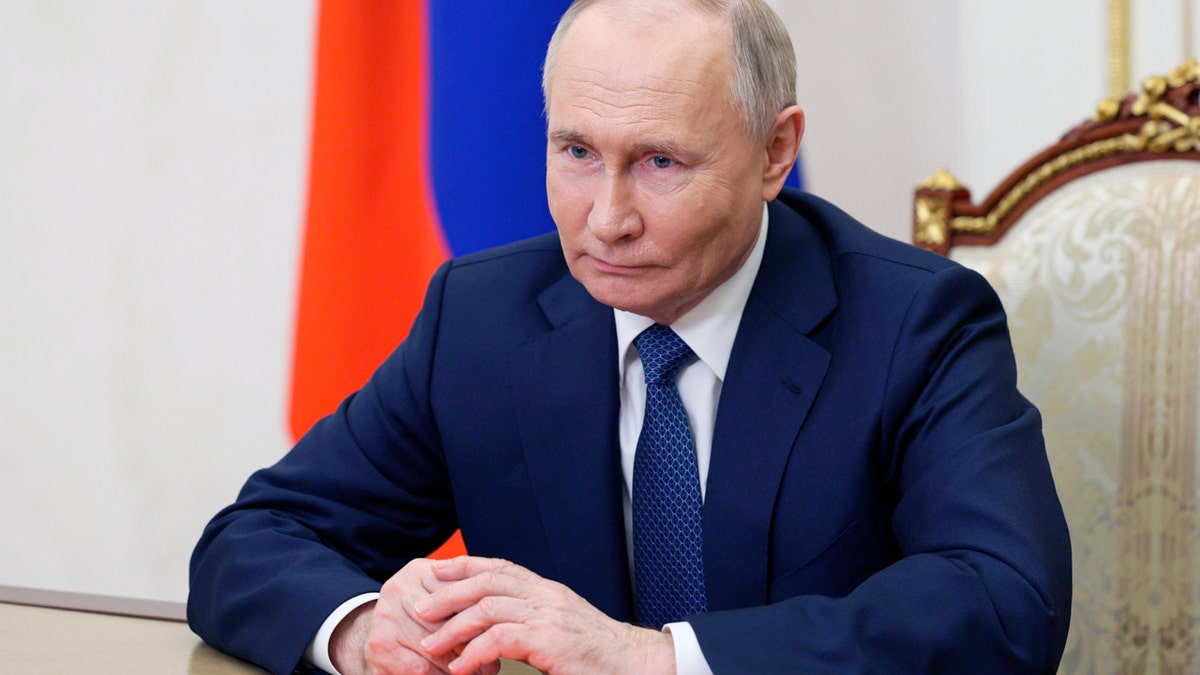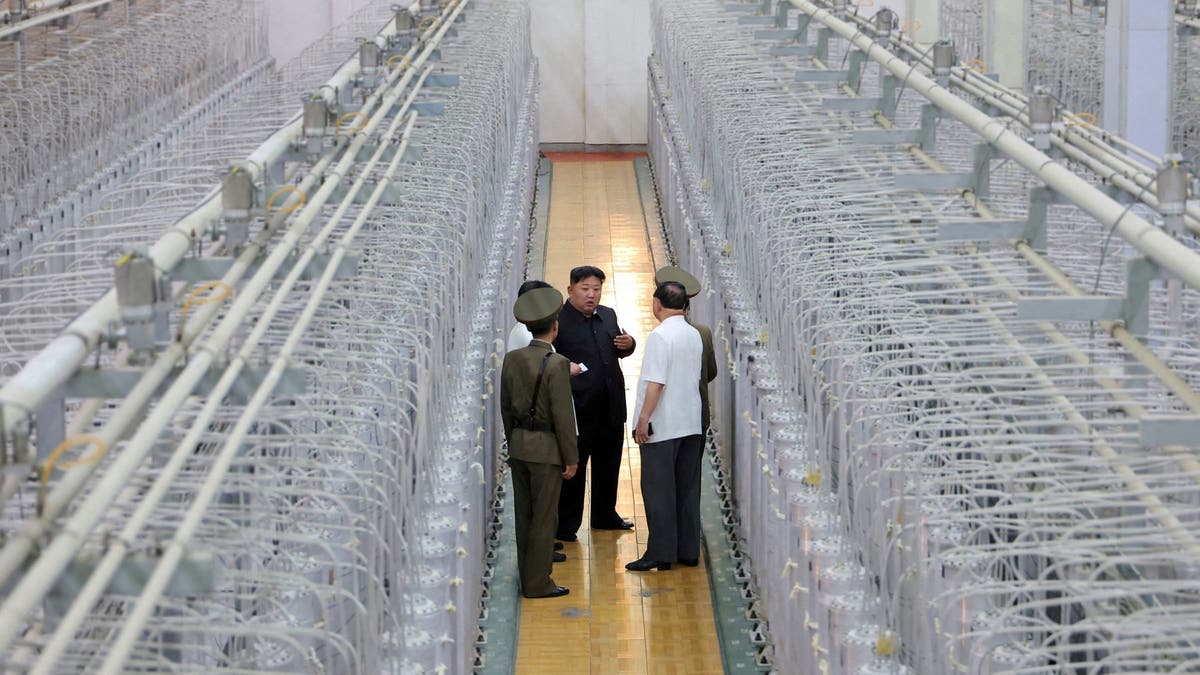Amid a wave of early shakeups in the new administration, President Donald Trump has twice this month proposed “denuclearization” talks with U.S. adversaries.
“Tremendous amounts of money are being spent on nuclear, and the destructive capacity is something we don’t even want to talk about today, because you don’t want to hear it,” Trump mused in remarks to the World Economic Forum at Davos, Switzerland, last week.
“I want to see if we can denuclearize, and I think it’s very possible,” suggesting talks on the issue between the U.S., Russia and China.
Such an idea could represent a major thawing in U.S. relations with two global adversaries – but beg the question of whether the U.S. could trust the nations to hold up their end of the deal.
President Vladimir Putin announced Russia would suspend its participation in the New START treaty in 2023 over U.S. support for Ukraine. Russia had frequently been caught violating the terms of the deal. But China has never engaged in negotiations with the U.S. over arms reduction.
IRAN’S COVERT NUCLEAR AGENCY FOUND OPERATING OUT OF SPACE LAUNCH SITES
Trump reiterated to Fox News’ Sean Hannity on Wednesday that he’d been close to a “denuclearization” deal with Russia during his first term.
“I was dealing with Putin about the denuclearization of Russia and the United States. And then we were going to bring China along on that one. I was very close to having a deal. I would have made a deal with Putin on that denuclearization. It’s very dangerous and very expensive, and that would have been great, but we had a bad election that interrupted us.”
The Defense Department now expects that China will have more than 1,000 nuclear warheads, a near-doubling of the estimated 600 they possess right now.
In a speech on Jan. 17, Russian Foreign Minister Sergey Lavrov said that “amid a ‘hybrid war’ waged by Washington against Russia, we aren’t seeing any basis, not only for any additional joint measures in the sphere of arms control and reduction of strategic risks, but for any discussion of strategic stability issues with the United States.”
But Putin, in an address on Monday, struck a more diplomatic tone: “We see the statements by the newly elected president… about the desire to restore direct contacts with Russia. We also hear his statement about the need to do everything possible to prevent World War III. We, of course, welcome this attitude.”
Chinese Foreign Ministry spokesperson Guo Jiakun said of Trump’s comments at a news conference on Wednesday: “China’s development of nuclear weapons is a historic choice forced to be made. As a responsible major country, China is committed to the path of peaceful development and friendly cooperation with all countries in the world.”

Experts argue Russia is using its leverage over nuclear arms control as a means for the U.S. agreeing to favorable terms to end the war with Ukraine.
“Russians are ‘me first’ painstaking negotiators, and what they’re doing in this case, is they’re clearly laying a bit of a trap,” said John Erath of the Center for Arms Control and Non-proliferation.
“It makes sense dangling arms control, which they perceive as something that we want, in front of us and saying, ‘Oh, by the way, we’ll talk about reducing nuclear weapons,’ as an incentive to get us to throw the Ukrainians under the bus.”
But whether Trump was revealing a policy priority or speaking on a whim with the Davos comments is anyone’s guess.
The president took heat during his first term for meeting with North Korean dictator Kim Jong Un to discuss nuclear reduction. That effort fell apart, and Trump resorted to threatening to rain “fire and fury” on North Korea.
“I think he’s very sensitive to the dangers of nuclear war, and realizes that in many ways, we’re closer to that today than we have been in many, many decades,” said George Beebe, a director at the Quincy Institute for Responsible Statecraft.
One thing most experts agree on is that the U.S. nuclear program is expensive and outdated. With some 3,700 warheads in its arsenal, the U.S. is expected to spend $756 billion to store and maintain its nuclear weapons between 2023 and 2032.

“Regardless of reductions, however, the administration and Congress must continue modernizing and ensuring the reliability of the U.S. nuclear arsenal while eliminating excessive spending where possible,” said Andrea Stricker, deputy director at the Foundation for Defense of Democracy’s nonproliferation program.
Arms experts admit that Russia has cheated on arms treaties, but U.S. intelligence capabilities have grown to ensure compliance.
“We’ve done it throughout the Cold War to varying degrees, and I think we’ve gotten better and more capable in our intelligence community of monitoring compliance with these sorts of things. So that is certainly a feasible approach to take,” said Beebe.
MIKE JOHNSON REPLACES POWERFUL INTELLIGENCE COMMITTEE CHAIRMAN AFTER RUSSIAN NUCLEAR THREAT WARNING
But China and Russia aren’t the only U.S. adversaries with nuclear weapons. North Korea is estimated to have an arsenal of 50 nuclear warheads, Iran is on the precipice of enriching uranium to potent enough levels for a bomb.
“Before engaging in arms control talks, Washington needs a strategy for how it will simultaneously deter two peer nuclear competitors, Russia and China, which could combine forces with states like North Korea and Iran to attack or coerce the United States,” said Stricker.
In the four decades between the U.S. atomic bombings of Japan in 1945 and the first arms control treaty between the U.S. and Russia, the world was on edge as the two superpowers raced to claim the world’s largest arsenal. In 1987, Washington and Moscow signed the Intermediate-Range Nuclear Forces Treaty (INF), which led to the dismantling of thousands of bombs.
But over the years, the U.S. and Russia lost their monopoly on civilization-ending weapons: now nine countries are nuclear-armed, rendering bilateral treaties less and less effective.
Read the full article here

